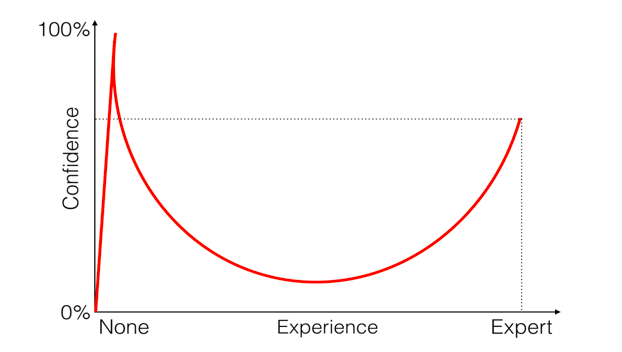The Dunning-Kruger effect is a type of cognitive bias in which people believe that they are smarter and more capable than they really are.
Essentially, low ability people do not possess the skills needed to recognize their own incompetence. The combination of poor self-awareness and low cognitive ability leads them to overestimate their own capabilities.

As Charles Darwin wrote in his book The Descent of Man, “Ignorance more frequently begets confidence than does knowledge.”
Two Psychologists; David Dunning and a graduate student, Justin Kruger, started a series of experiments testing this premise.
After they got the funny story of Mr. McArthur (I ware the juice). The psychologists decided to study it more deeply. They were interested to study the great confidence of Wheeler that made him believe he’d be able to foil the security cameras with lemon juice on his face. He had the confidence, but he clearly wasn’t competent enough…Why was he so sure he’d succeed?
They quizzed undergraduate psychology students on grammar, logic, and jokes, then asked the students to estimate their scores and also estimate how well they did relative to others (on a percentile basis).
The students who scored lowest had greatly exaggerated notions of how well they did.
 Dunning had expected that, but not the magnitude of the effect.
Dunning had expected that, but not the magnitude of the effect.
His first reaction to the results was “Wow”. Those who scored near the bottom estimated that their skills were superior to two-thirds of the other students
The study finally demonstrated that the less competent an individual is at a specific task, the more likely they are to inflate their self-appraised competence in relation to that task. This phenomenon is today known as the Dunning–Kruger effect.


Dr. Khalid Abulmajd
Healthcare Quality Consultant